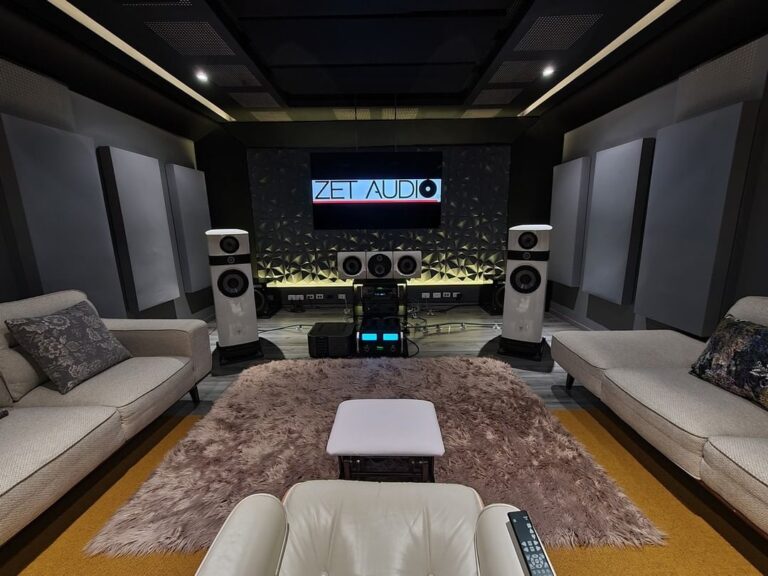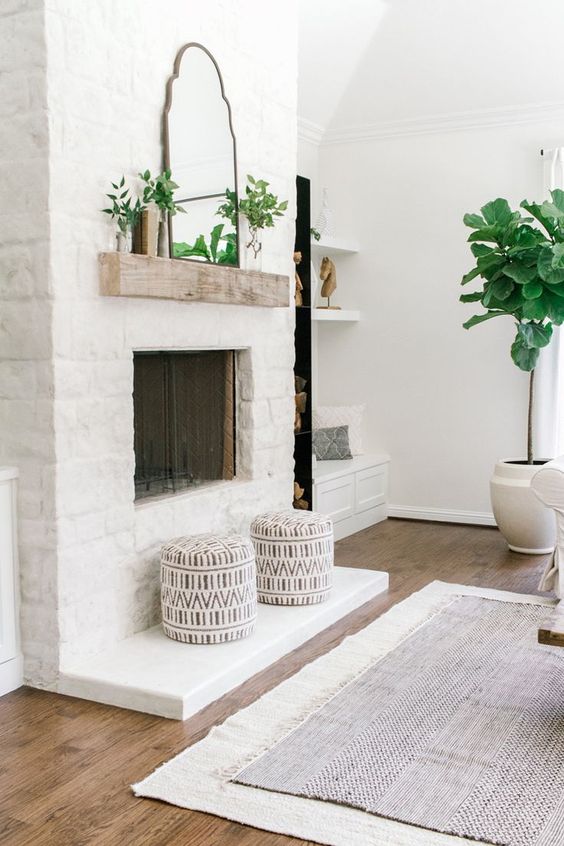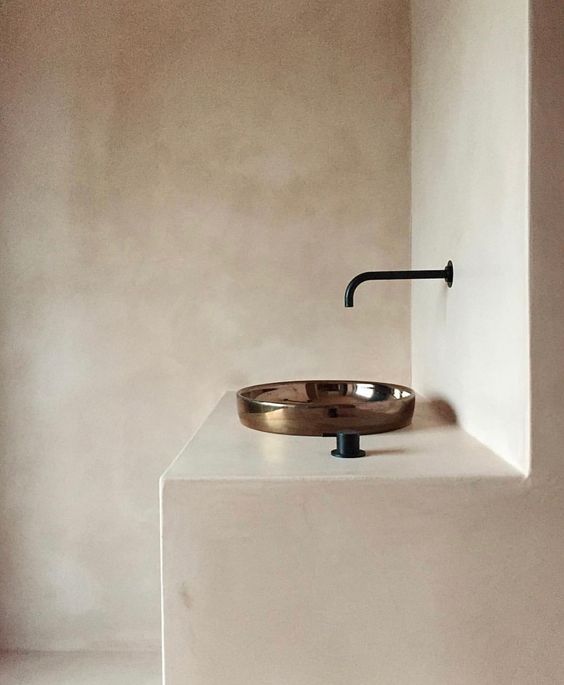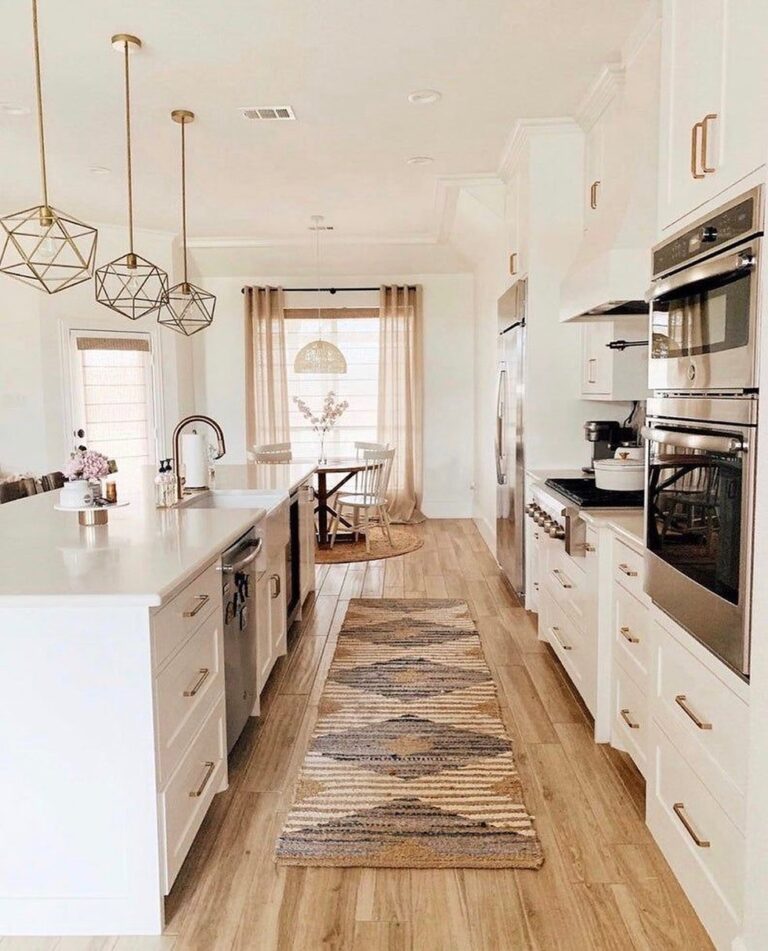Pros and Cons of Polycarbonate Roofing
The pros and cons of polycarbonate roofing will depend on the specific needs and requirements of your project. The Margard sheet is known for its exceptional impact resistance and durability, making it an ideal choice for a wide range of applications. It is important to carefully consider both the advantages and disadvantages of this material before making a decision.
Pros of Polycarbonate Roofing:
Durability: Polycarbonate is a strong and impact-resistant material, making it ideal for use in high-traffic areas and areas exposed to the elements.
Lightweight: Compared to other roofing materials, such as glass or metal, polycarbonate is relatively lightweight, making it easy to install and handle.
UV protection: Many types of polycarbonate roofing have built-in UV protection, which helps prevent yellowing and degradation over time.
Cost-effective: Polycarbonate roofing is typically more affordable than other roofing materials, making it a popular choice for budget-conscious homeowners and contractors.
Versatility: Polycarbonate roofing is available in a variety of colors, patterns, and thicknesses, making it easy to find a product that meets your specific needs and requirements.
Cons of Polycarbonate Roofing:
Transparency: While the transparency of polycarbonate roofing can be an advantage in some cases, it can also be a drawback, as it can let in too much light or cause glare.
Noise: Polycarbonate roofing can amplify noise, making it less suitable for use in areas with high levels of ambient noise.
Vulnerability to hail: While polycarbonate roofing is generally impact-resistant, it can be vulnerable to damage from large hail or other sharp objects.
Expansion and contraction: Polycarbonate roofing can expand and contract with temperature changes, which can cause problems with the roofing system over time.
Difficulty of installation: Installing polycarbonate roofing can be more difficult than other roofing materials, as it requires specialized tools and techniques.
Applications of Polycarbonate Roofing
Polycarbonate is a type of thermoplastic material that is known for its high impact resistance, transparency, and versatility. These properties make it ideal for a wide range of applications, from construction and automotive to electronics and sports equipment. It is commonly used in a wide range of applications, including:
Construction:
Polycarbonate is often used in construction for roofing, walls, and glazing, as well as in machine guards, safety shields, and vandal-resistant applications.
Automotive:
Polycarbonate is used in the automotive industry for headlamp lenses, taillight lenses, and instrument panel covers.
Electronics:
Polycarbonate is commonly used in electronic devices, such as cell phones and laptops, due to its high impact resistance and lightweight properties.
Medical:
Polycarbonate is used in medical devices, such as hearing aids, due to its biocompatibility and high durability.
Sports equipment:
Polycarbonate is commonly used in sports equipment, such as hockey masks and eyewear, due to its impact resistance and transparency.
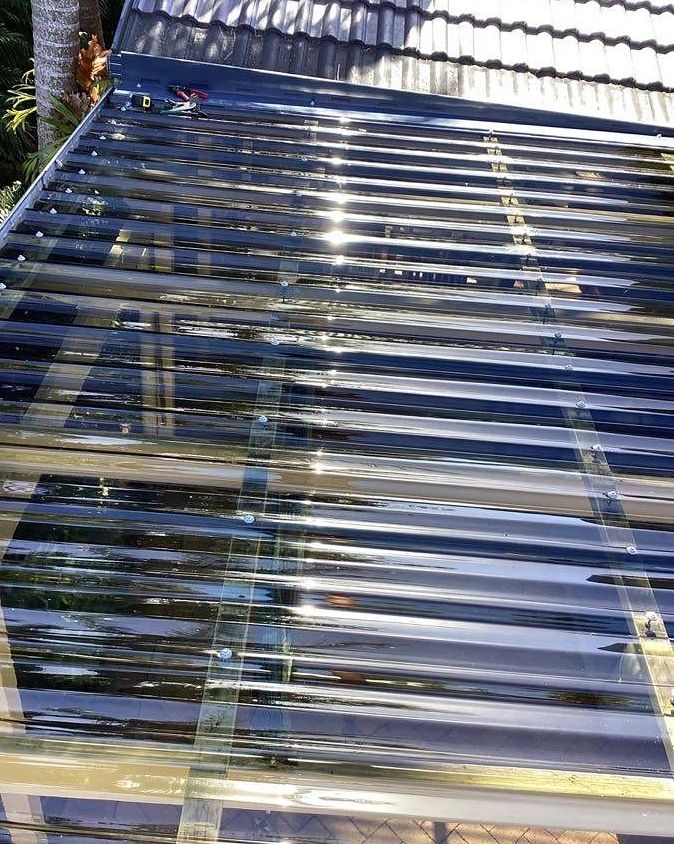
Types of polycarbonate roofing
Each type of polycarbonate roofing has its own unique properties and benefits, so it is important to choose the right one for your specific needs and requirements. Factors to consider when choosing polycarbonate roofing include the location, climate, and intended use of the roofing system, as well as budget and personal preferences. There are several types of polycarbonate roofing available, including:
Solid polycarbonate sheets: These are solid sheets of polycarbonate material that are commonly used for roofing, walls, and glazing. They are available in a variety of thicknesses and can be cut to size for custom applications.
Corrugated polycarbonate sheets: These are sheets of polycarbonate material that have a series of corrugated ribs for added strength and rigidity. They are commonly used for roofing and walls in industrial, agricultural, and commercial applications.
Multiwall polycarbonate sheets: These are sheets of polycarbonate material that are made up of several layers of thin, interconnected walls. They provide excellent insulation properties and are commonly used for roofing and walls in residential and commercial applications.
Embossed polycarbonate sheets: These are sheets of polycarbonate material that have a textured surface for added visual interest and aesthetic appeal. They are commonly used for roofing and walls in residential and commercial applications.
UV-resistant polycarbonate sheets: These are sheets of polycarbonate material that have built-in UV protection to help prevent yellowing and degradation over time. They are commonly used for roofing and walls in outdoor applications.
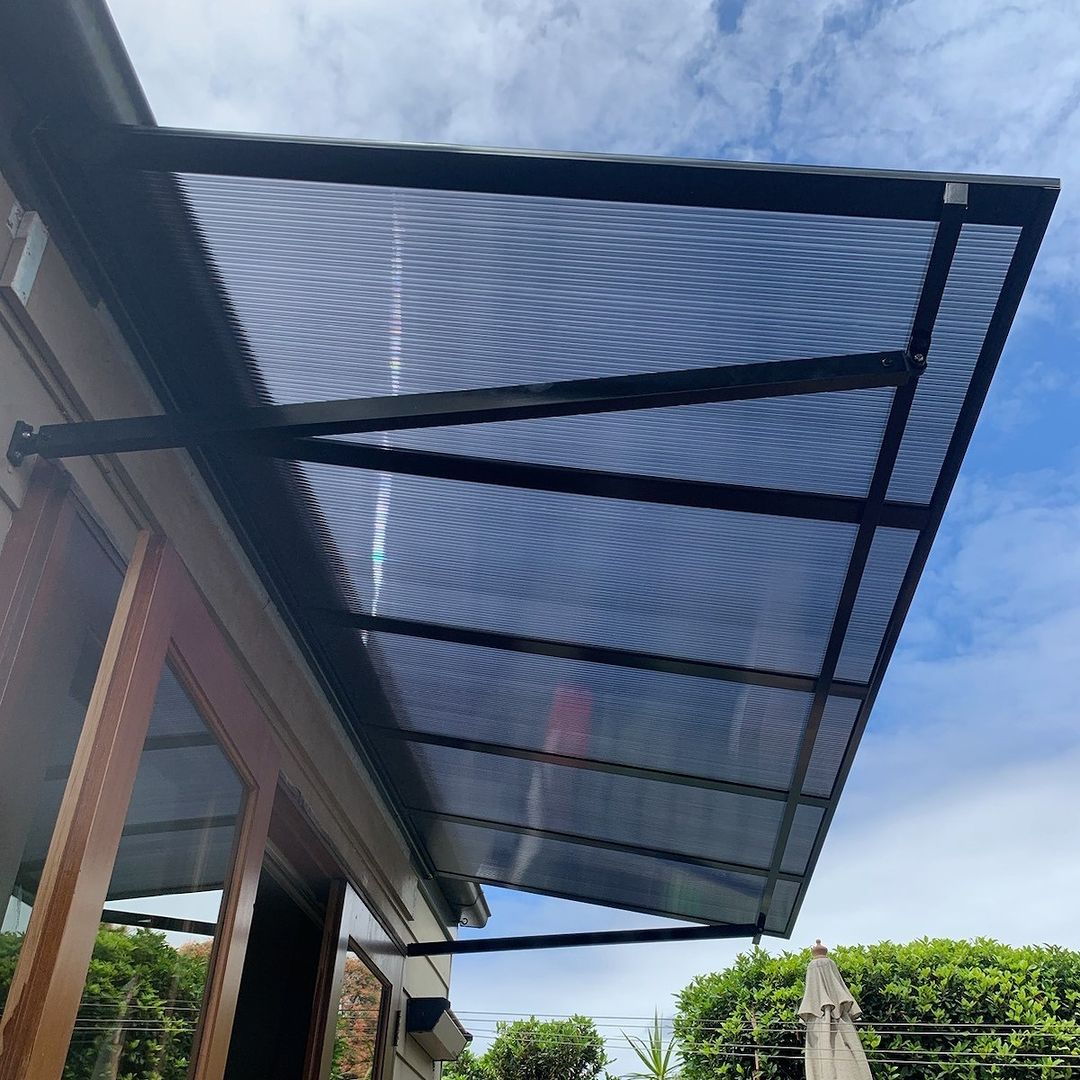
Where is Polycarbonate Roofing used?
Polycarbonate roofing is used in a variety of applications, including:
· Polycarbonate roofing is often used in residential buildings for sunrooms, patios, and pergolas, due to its transparency and ability to provide shade and protection from the elements.
· Polycarbonate roofing is commonly used in commercial buildings for atriums, skylights, and roofing systems, as it provides excellent insulation properties and natural light.
· Polycarbonate roofing is often used in agricultural buildings for greenhouses, as it provides excellent insulation properties and allows for maximum light transmission.
· Polycarbonate roofing is commonly used in industrial buildings for machine guards, safety shields, and other protective applications.
· Polycarbonate roofing is often used in sports facilities, such as indoor sports centers and swimming pools, as it provides excellent light transmission and protection from the elements.
Polycarbonate roof lifespan
The lifespan of a polycarbonate roof depends on several factors, including the quality of the material, the thickness of the sheets, and the conditions under which the roofing system is installed and used. In general, polycarbonate roofing is known for its durability and resistance to impact, weathering, and UV degradation, making it a popular choice for roofing and other applications.
Under ideal conditions, with proper installation and maintenance, a polycarbonate roof can last anywhere from 10 to 20 years or more. However, the exact lifespan will depend on factors such as the quality of the material, the thickness of the sheets, and the conditions under which the roofing system is installed and used. For example, if a polycarbonate roof is installed in an area with high levels of UV exposure or frequent inclement weather, it may have a shorter lifespan compared to a roof that is installed in a more protected location.
Conclusion
The pros and cons of polycarbonate roofing will depend on the specific needs and requirements of your project. Polycarbonate is a strong and impact-resistant material, making it ideal for use in high-traffic areas and areas exposed to the elements. Polycarbonate is a thermoplastic material that is known for its high impact resistance, transparency, and versatility. It is also commonly used in applications that require transparency and clarity, such as in skylights, roofing systems, and greenhouses.


